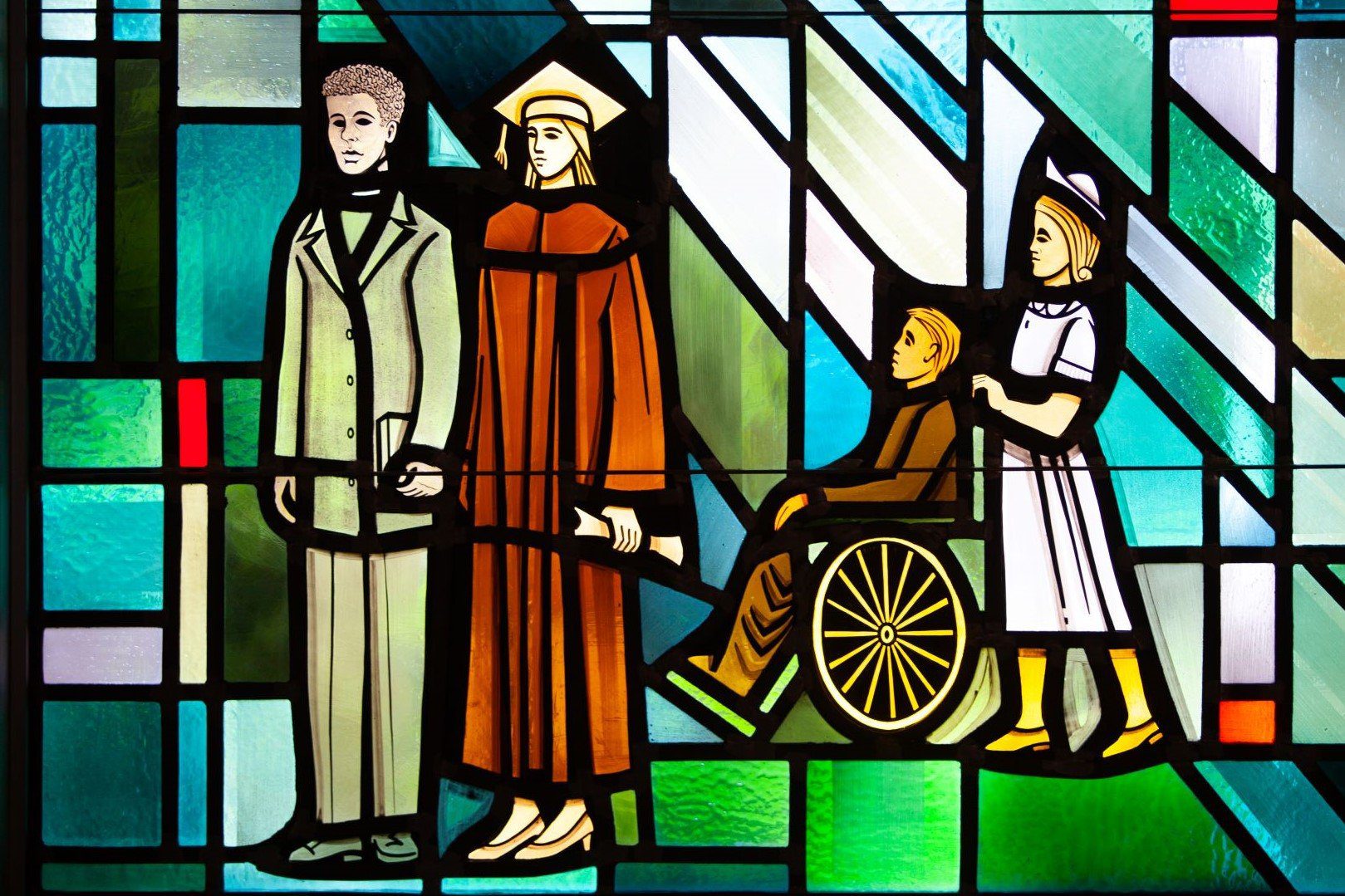
Vocation comes from the Latin, vocatio, which means simply, “calling.” The word has been used in so many ways, in both the church and the world, that it’s important to define the language of call, calling, and vocation. What is a vocation? How does one have a vocation?
In its popular use, the word vocation typically means an occupational vocation associated with the trades or specialized technical training. A vocational school may train auto mechanics, HVAC technician, cabinet makers, and so on. These are helpful jobs that can serve the neighbor, but they are not vocations according to the New Testament’s use of the term. According to Scripture, only Christians have a vocation. And they have a vocation in one or two ways. First, all Christians have a calling because they have been called by the Gospel of Jesus Christ to believe and to have life in His name. This is, properly speaking, Christian vocation. Thus, St. Paul refers to Christians as “the called ones” (Rom. 1:7; 1 Cor. 1:2; Eph. 4:4).
Out of those called ones, however, some men are set apart, like St. Paul, the apostles, and all pastors, who are called into Christ’s ministry to preach the Gospel (Rom. 1:1; 1 Cor. 1:1; Eph. 4:11-12). This is the special vocation or call that the Lutheran Church confesses in Article XIV of the Augsburg Confession: “Concerning church order they [our churches] teach that no one should teach publicly in the church or administer the sacraments unless properly called.”
The doctrine of vocation as a doctrine in Lutheran theology has been popularized in recent decades through a reevaluation of Martin Luther’s teachings on the Christian life. Against the backdrop of clericalism within the Roman Catholic Church, which taught that those who entered into holy orders (monasteries and convents) in the church were the only ones with a “vocation,” Luther taught that every baptized Christian who believes the Gospel has the vocation of God, that is, God’s call to be His own possession. All Christians are royal priest (1 Pet. 2:9-12), called by God to believe and confess His name throughout the world, and to be holy in an unholy world. There is, according to this understanding of vocation, no special class of Christians. Rather, to be a Christian is to have the very highest calling. The vocation of a pastor is a more dangerous calling, because it in no way guarantees that one will be saved. Only the vocation as Christian guarantees that we are Christ’s and He is ours.
In this way, Luther recognized that all walks of life, whether butcher, baker, or candlestick maker, were holy, not because making candles is particularly holy work, but because the one making the candles is holy and therefore sanctifies the work God commands us to do. One does not have to be a Christian baker to produce a delicious Black Forest cake, but the one who bakes it trusting in Christ has sanctified that work and with it serves others in love, according to God’s word.
Our calling or vocation properly understood is therefore not to be a nurse, doctor, soldier, teacher, American citizen, or even a spouse or parent, but to be saints of God, who live by faith in Christ in the various stations or duties God gives us to do. Some are parents, all are children of someone, some are teachers, most of us are American citizens, and a few of us are all of these. But it is not the duty or responsibility as an American citizen or a parent that makes us holy, just as we are not made holy by our works. Changing diapers is not holy in and of itself. However, faith in God’s Gospel call makes us holy and His word teaches us the good things that need doing in love. Thus, Christians sanctify and make holy everything they do, insofar as they live by faith.
As we prepare students at Concordia, the doctrine of vocation ought to be a central teaching in every one of our classes, as we prepare students in “mind, body, and soul in service to Christ in the church and in the world” (CUWAA Mission Statement). Anyone with the intellectual gifts and a good work ethic can become a pharmacist, an events manager, an actuary, or an English teacher. There’s arguably no reason why students couldn’t become excellent in those fields without a Christ-centered education. But there is also arguably no place in the world that understands as we do that the call to be a Christian sanctifies all that we do by God’s grace and sanctifies those whom we serve. Our work is not to make us pleasing to God—Christ has already done that work—but to serve our neighbor in love. Our students are sent off not merely to get jobs, but to be the aroma of Christ in the world and to sanctify the world through their work. It may not look tremendously spiritual to live out one’s vocation quietly as Christians in the various places God puts us. We want the spiritual highs of mission trips and special service projects. But the Lord has called us to be His in every place where we find ourselves.
Concordia teaches students to hear the call of Jesus: “Follow Me!” For all those who believe, who have become God’s children by faith and have received this high calling of a Christian, the work that we do is holy, makes others holy, and blesses those whom we serve in love. To this God has called us. “And I am sure of this, that He who began a good work in you will bring it to completion at the day of Jesus Christ” (Phil. 1:6).
 —Rev. Dr. Jason Lane serves as an associate professor of theology at CUW
—Rev. Dr. Jason Lane serves as an associate professor of theology at CUW
—
If this story has inspired you, why not explore how you can help further Concordia's mission through giving.